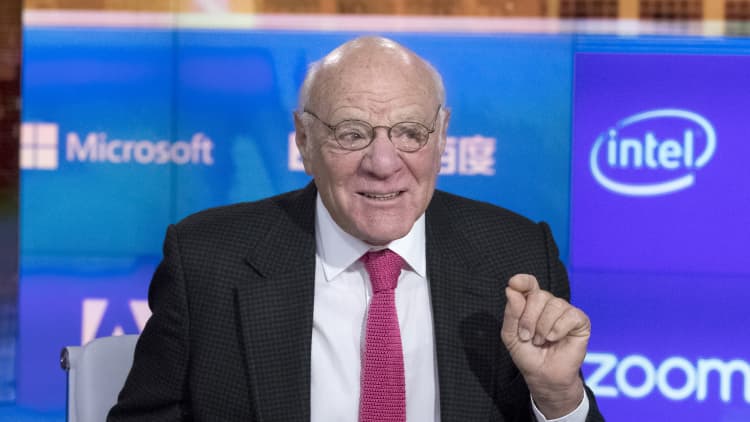When Alphabet reports first-quarter earnings Tuesday afternoon, the coronavirus-induced crash in tourism and travel will likely weigh heavily on the results.
Booking Holdings, the parent of Booking.com, Priceline and Kayak, will slash its ad spending on Google from about $4 billion in 2019 to $1 billion to $2 billion this year, according to Mark Mahaney, an analyst at RBC Capital Markets. "This is highly contingent on when COVID lockdowns end," he said in an email to CNBC. Travelers use Booking's sites to reserve flights, hotels, resorts, vacation homes and rental cars.
Expedia Chairman Barry Diller told CNBC's "Squawk Box" earlier this month that his online travel agency, which also promotes heavily on Google, would spend less than $1 billion on advertising this year, down from $5 billion in 2019. Airbnb last month suspended marketing as it copes with plummeting vacation home visits.
In a note to clients on April 26, Stifel analysts said they expect "near-term economic impacts" at Alphabet, highlighting Google and YouTube's "particular exposure to travel, media & entertainment, retail, finance, and, automotive verticals." The firm said search spending on travel is down by 50% from before the pandemic struck.
Although it has many experimental and new businesses that generate publicity, Alphabet is overwhelmingly dependent on advertising for actual revenue. Google is the only financially material company under the Alphabet umbrella, generating more than 99% of its revenue last year, while the other Alphabet companies, like Verily (health tech) and Waymo (self-driving cars) are long-term investments. Within Google itself, 84% of its revenue last year came from advertising, with the remainder from cloud computing, hardware and other businesses.
Now, Google's dominant ad business is facing its biggest test since the Great Recession. The stock has fallen 17% since closing at a record on Feb. 19, a steeper drop than the S&P 500 over that stretch and the biggest decline among the five most valuable U.S. tech companies. With consumers in many of the biggest U.S. markets locked down, investors are left to ponder how long it will be before airlines, hotels, cruise companies and concert venues are back in business and promoting their products.
Online travel agencies are big spenders on Google because so many travelers book trips after going to the search engine and typing in queries like "flight to Paris," "hotel in Manhattan" or "car rental in Las Vegas." Those keywords are pricey, but Booking, Expedia and others pay up for them because successfully initiating a reservation is highly profitable.
Booking has long been one of Google's single biggest customers. The company spent $4.4 billion on performance marketing in 2019 and the same amount in 2018, accounting for close to 90% of its marketing budget each year.
While Booking didn't disclose how much of that money went to Google ads, the company said in its latest annual report that, "We use Google to generate a significant portion of the traffic to our platforms, and, to a lesser extent, we use other search and meta-search services to generate traffic to our platforms, principally through pay-per-click marketing campaigns."
A Booking spokesperson declined to comment and said the company won't provide more information until it announces earnings next month. Google also declined to comment.
Google sees problems on the horizon and is putting in place cost-cutting measures. The company is slashing its marketing budgets by as much as half for the second half of the year, CNBC reported last week after viewing internal materials.
There's little doubt that the second quarter will be tough for Google, following a similar path as the last six weeks of the first quarter. For the back half of the year, large conferences and festivals have already been canceled, leading many analysts to conclude that Google and its $135 billion annual ad business will have to weather the coronavirus for at least the rest of 2020.
"While we expect a market share shift to digital advertising, overall ad spending will mirror the likely contraction in the economy caused by the pandemic," Wedbush analysts said in a report last week. "And we expect Alphabet to suffer from slower growth for the balance of the year."
WATCH: Barry Diller on coronavirus economic impact, bailing out industries and more



